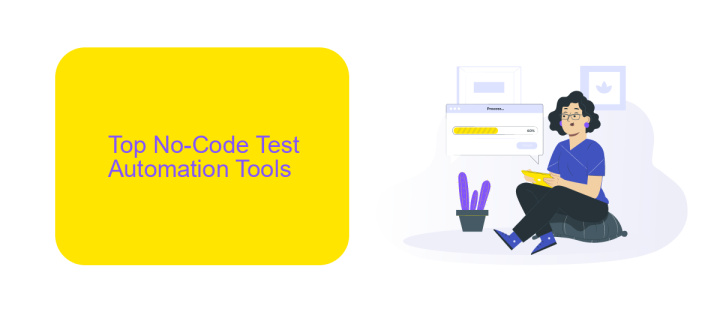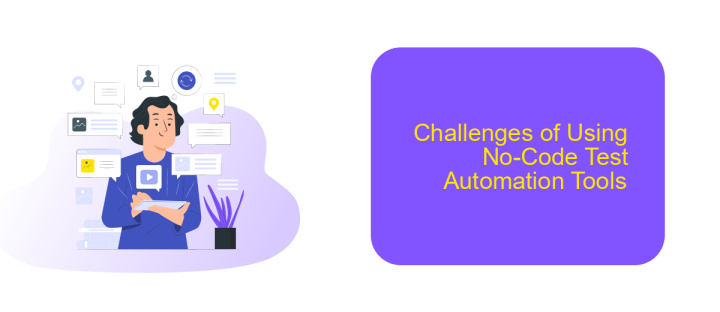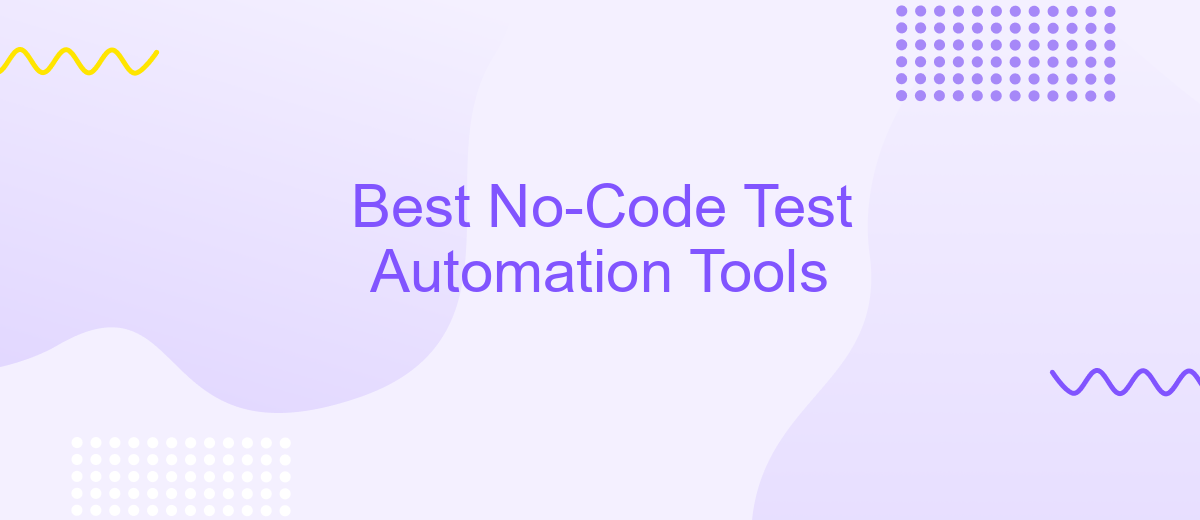Best No-Code Test Automation Tools
In today's fast-paced tech landscape, the demand for efficient and reliable software testing has never been higher. No-code test automation tools are revolutionizing the way teams approach quality assurance, enabling even non-technical users to create and execute tests with ease. This article explores the best no-code test automation tools available, helping you choose the right solution to streamline your testing process.
Introduction
In today's fast-paced software development environment, ensuring the quality and reliability of applications is paramount. Traditional test automation often requires extensive coding knowledge, which can be a barrier for many teams. No-code test automation tools have emerged as a solution, enabling teams to create, manage, and execute tests without writing a single line of code.
- Ease of use: These tools offer intuitive interfaces, making it simple for anyone to design tests.
- Faster development cycles: With no-code tools, teams can quickly implement testing, reducing time-to-market.
- Cost-effective: Reducing the need for specialized coding skills can lower overall project costs.
One of the key advantages of no-code test automation tools is their ability to integrate seamlessly with other services and platforms. For instance, ApiX-Drive allows users to set up integrations effortlessly, ensuring that their testing processes are streamlined and efficient. By leveraging such tools, organizations can maintain high-quality standards while focusing on their core development tasks.
Top No-Code Test Automation Tools

No-code test automation tools have revolutionized the software testing landscape by enabling testers and developers to create and execute tests without writing a single line of code. Some of the top tools in this category include Testim, which leverages machine learning to improve test stability, and Katalon Studio, known for its comprehensive test management capabilities. These tools offer intuitive interfaces, making it easier for teams to collaborate and streamline their testing processes.
Another notable tool is ApiX-Drive, which excels in integrating various applications and automating workflows. It allows users to set up integrations effortlessly, ensuring that automated tests can run seamlessly across different platforms. Additionally, tools like TestProject and Leapwork provide robust features for test automation, including record-and-playback functionalities and extensive reporting options. These no-code solutions empower organizations to achieve higher efficiency and reliability in their testing efforts.
Benefits of Using No-Code Test Automation Tools

No-code test automation tools provide numerous benefits that make them an attractive option for teams looking to streamline their testing processes. These tools allow users without extensive programming knowledge to create, execute, and manage automated tests, significantly reducing the time and effort required for software testing.
- Ease of Use: No-code platforms are designed with user-friendly interfaces, enabling even non-technical team members to participate in the testing process.
- Cost-Effective: By reducing the need for specialized developers, these tools can lower overall project costs.
- Faster Time to Market: Automated tests can be created and executed quickly, accelerating the development cycle and helping to deliver products faster.
- Integration Capabilities: Many no-code tools, such as ApiX-Drive, offer seamless integration with various applications and services, simplifying the process of connecting different systems.
- Scalability: These tools can easily scale to accommodate growing testing needs as projects evolve.
By leveraging no-code test automation tools, teams can enhance their productivity and focus on more critical aspects of software development. The ability to integrate with services like ApiX-Drive further enhances their functionality, making them a versatile solution for modern development environments.
Challenges of Using No-Code Test Automation Tools

No-code test automation tools offer numerous advantages, but they also come with their own set of challenges. One major issue is the limited flexibility in customizing tests, which can be a significant drawback for complex testing scenarios. These tools often lack the advanced features that developers might need to handle intricate test cases.
Another challenge is the integration capabilities. While no-code tools are designed to be user-friendly, they may not always seamlessly integrate with other software and services. This can lead to inefficiencies and additional manual work, defeating the purpose of automation.
- Limited customization options
- Integration difficulties
- Scalability issues
- Potential for vendor lock-in
For instance, integrating a no-code test automation tool with other platforms may require additional services like ApiX-Drive, which simplifies the integration process. However, relying on third-party services can introduce new complexities and costs. Therefore, it's crucial to carefully evaluate the specific needs and constraints of your project before opting for a no-code solution.
Conclusion
In conclusion, the landscape of no-code test automation tools is rapidly evolving, offering a plethora of options for teams of all sizes and skill levels. These tools empower businesses to streamline their testing processes, reduce time to market, and ensure higher quality software without the need for extensive coding knowledge. By leveraging these solutions, teams can focus more on innovation and less on the technical complexities of test automation.
Moreover, integrating these no-code tools with other services can further enhance their capabilities. For instance, using platforms like ApiX-Drive, teams can effortlessly connect their test automation tools with various applications and services, ensuring seamless data flow and synchronization. This not only boosts efficiency but also provides a more holistic approach to software development and testing. As the demand for faster and more reliable software grows, the adoption of no-code test automation tools will undoubtedly become a cornerstone of modern development practices.
FAQ
What are the benefits of using no-code test automation tools?
How do no-code test automation tools handle integrations with other systems?
Are no-code test automation tools suitable for complex testing scenarios?
Can no-code test automation tools be used for continuous integration and continuous deployment (CI/CD)?
What are some common challenges when using no-code test automation tools?
Time is the most valuable resource in today's business realities. By eliminating the routine from work processes, you will get more opportunities to implement the most daring plans and ideas. Choose – you can continue to waste time, money and nerves on inefficient solutions, or you can use ApiX-Drive, automating work processes and achieving results with minimal investment of money, effort and human resources.

